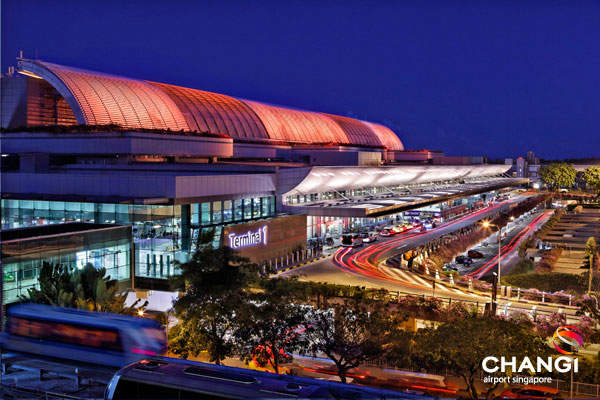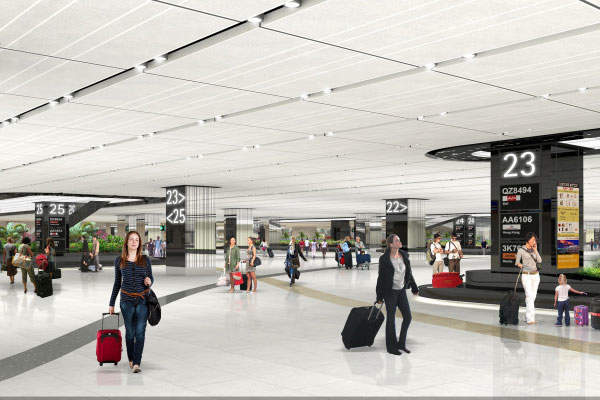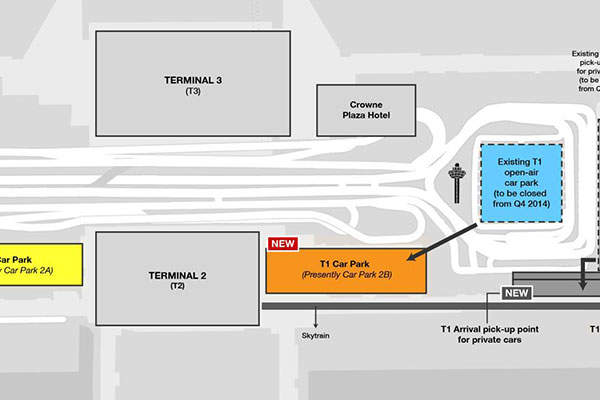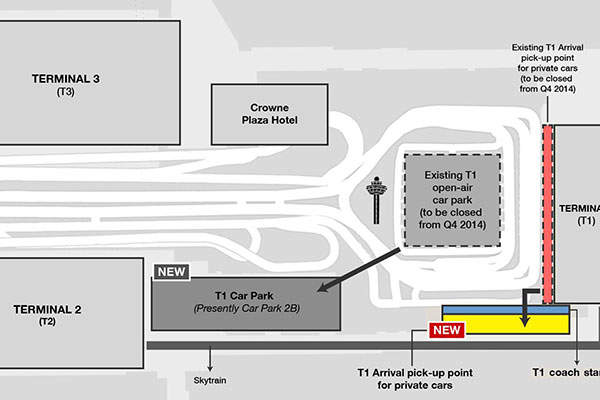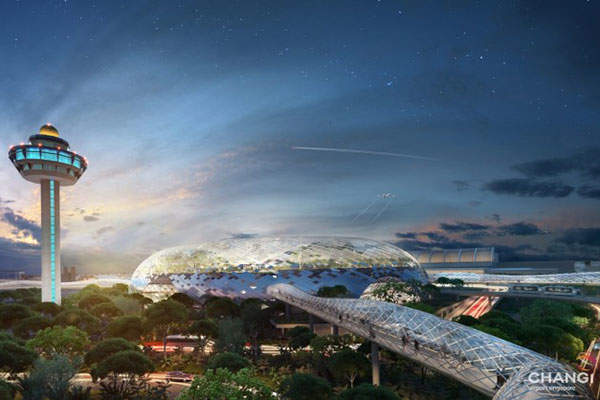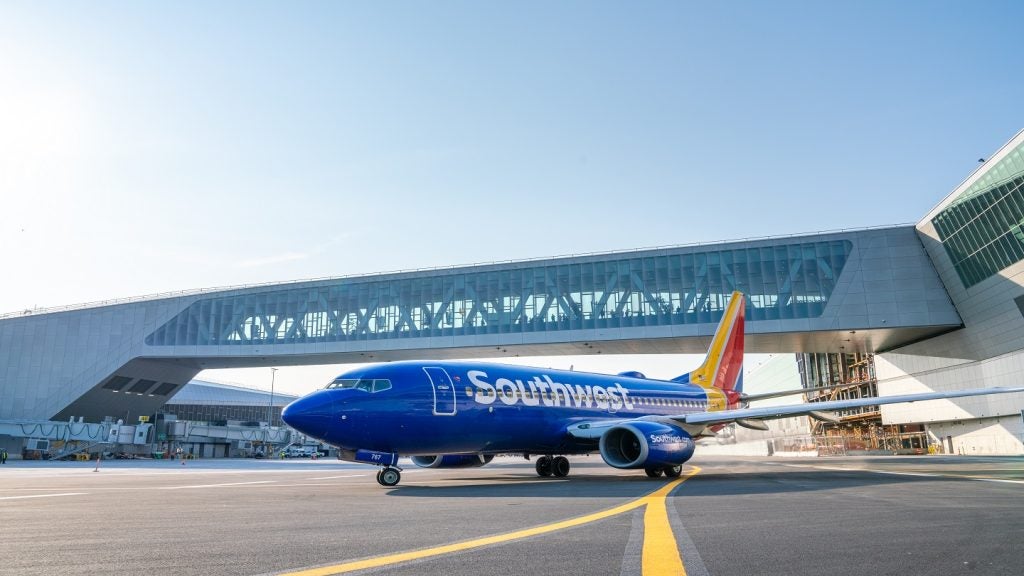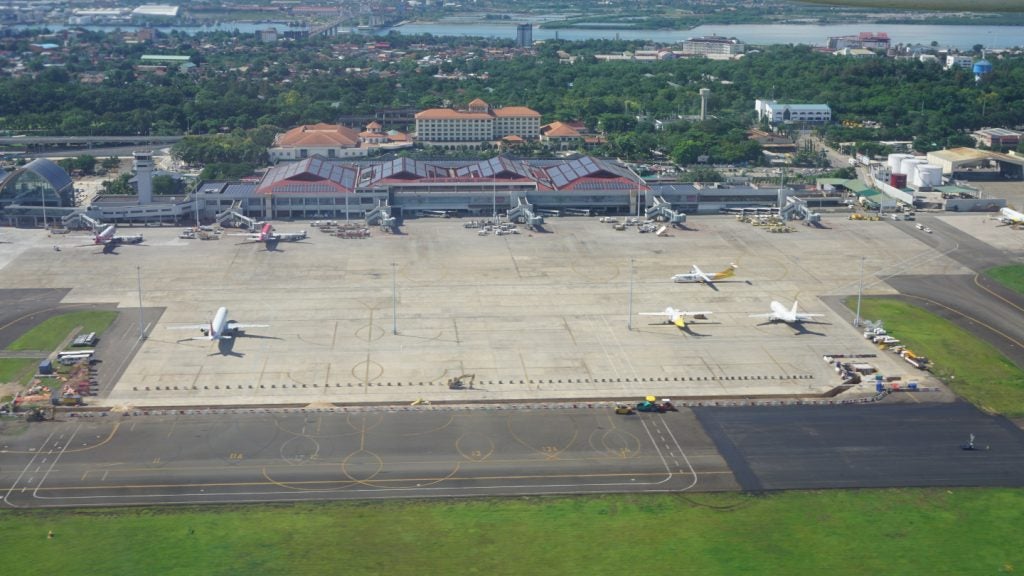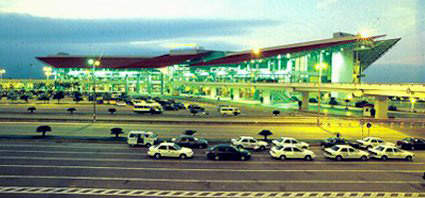Changi International Airport, one of the world’s busiest international airports, is the gateway to Singapore.
It is a major hub in Asia and hosts more than 120 international airlines, transporting passengers to over 380 cities in 100 countries. The airport handled 65.6 million passengers and 2.15t of cargo in 2018.
Changi Airport Group (CAG) broke ground for the expansion of Terminal 1 (T1), as well as the construction of a new mixed-use complex named Jewel at the airport in December 2014.
T1 is the first terminal of the airport, which was opened for commercial operations in 1981. It was first upgraded in 2012 witnessing the addition of 22,000m² of space to provide improved passenger flow, additional facilities and expanded retail and dining offerings.
The ongoing expansion, which is the second major extension at the terminal, includes a major redevelopment to expand the terminal’s footprint to handle 24 million passengers per annum.
It will also increase the annual passenger handling capacity of Changi Airport from 82 million to 85 million.
Details of the Terminal 1 expansion at Changi International Airport
CAG started the terminal expansion to address the increasing passenger traffic while ensuring further growth at the T1. CAG plans to expand the terminal’s footprint with the redevelopment of the open-air car park located in front of the terminal building.
The T1 building was expanded towards the open-air car park site to create more space for a larger arrival hall and spacious baggage claim areas.
Redevelopment works at the open-air car parking are currently underway, while expansion within the terminal commenced in March 2015. The T1 expansion is scheduled for completion by the end of 2019.
Expansion works within the terminal included renovation of the departure check-in hall by replacing existing check-in counters and installing two new check-in rows.
Five of the existing retail and dining outlets were closed in the second quarter of 2015 to facilitate the construction of new check-in rows. The proposed changes will help increase the passenger processing capacity of the check-in hall.
A part of the area within the apron and the arrival immigration hall at T1 was revamped to create enough space to upgrade the baggage handling system and its supporting infrastructure.
The passenger handling capacity was further enhanced by the expansion of the T1’s departure drop-off bay and arrival pick-up point for private cars as well as by the addition of more taxi bays.
New pedestrian bridges were constructed linking the Jewel mixed-use facility with Terminals 2 and 3 to enhance connectivity between the terminals.
Parking and ground transportation
The existing open-air car park in front of T1 was closed for redevelopment in November 2014. T1 users are now being redirected to car park at Terminal 2 (T2), which has been renamed as T1 car park. The arrival pick-up point at T1 has also been shifted to a new place outside the T1 arrival hall.
Parking and ground transport facilities were improved with the construction of a five-storey basement car park and additional taxi bays respectively. The basement car park, designated as the T1/Jewel car park is located in the Jewel building.
Opened in November 2018, the car park offers 2,500 parking spaces, making it three times bigger than the open-air car park.
Baggage handling system upgrades
The baggage handling system at T1 was upgraded from a semi-automated system to fully automated system. It features an automatic sorting capability that enables self-check-in, self-bag-drop and hence reduces check-in time and increases check-in capacity.
The baggage claim capacity at the terminal is further enhanced with the installation of two additional arrival baggage claim carousels.
Jewel mixed-use complex at Changi International Airport
CAG in collaboration with Jewel Changi Airport Trustee (JCAT) initiated an iconic multi-use complex project known as Project Jewel. The complex, aimed at strengthening the airport’s position as international air hub, integrates airport operations, travel-related facilities, leisure attractions and retail offerings.
Project Jewel is constructed on 3.5ha in front of T1. Designed by a consortium of architects, including Safdie Architects, Benoy and local architects RSP, the Jewel complex features a glass and steel façade, featuring a large indoor garden with a 40m-high waterfall named Rain Vortex.
Jewel is a five-storey tall building in addition to five basement stories covering a total gross floor area of approximately 134,000m².
The complex features cabin hotels, restaurants, retail stores and other attractions in addition to aviation facilities. It is integrated with T1 and serves as a node to enhance connectivity between the terminals and the rail station.
The Jewel project was opened to public in June 2019.
Contractors involved with Changi Airport Terminal 1 expansion
CAG awarded the S$323m ($233m) construction contract for the T1 expansion to Takenaka Corporation in March 2015. The company handled other infrastructure development projects at the Changi airport in the past, including the upgrade of T1 (2012) and Terminal 2 (2006).
Takenaka will handle all expansion works within the terminal, except the baggage handling system upgrade, which will be performed by Vanderlande Industries.
The $1.57bn ($1.13bn) contract for the construction of Project Jewel, and T1 expansion works outside the terminal were awarded to a joint venture between Woh Hup and Obayashi Singapore in October 2014.

